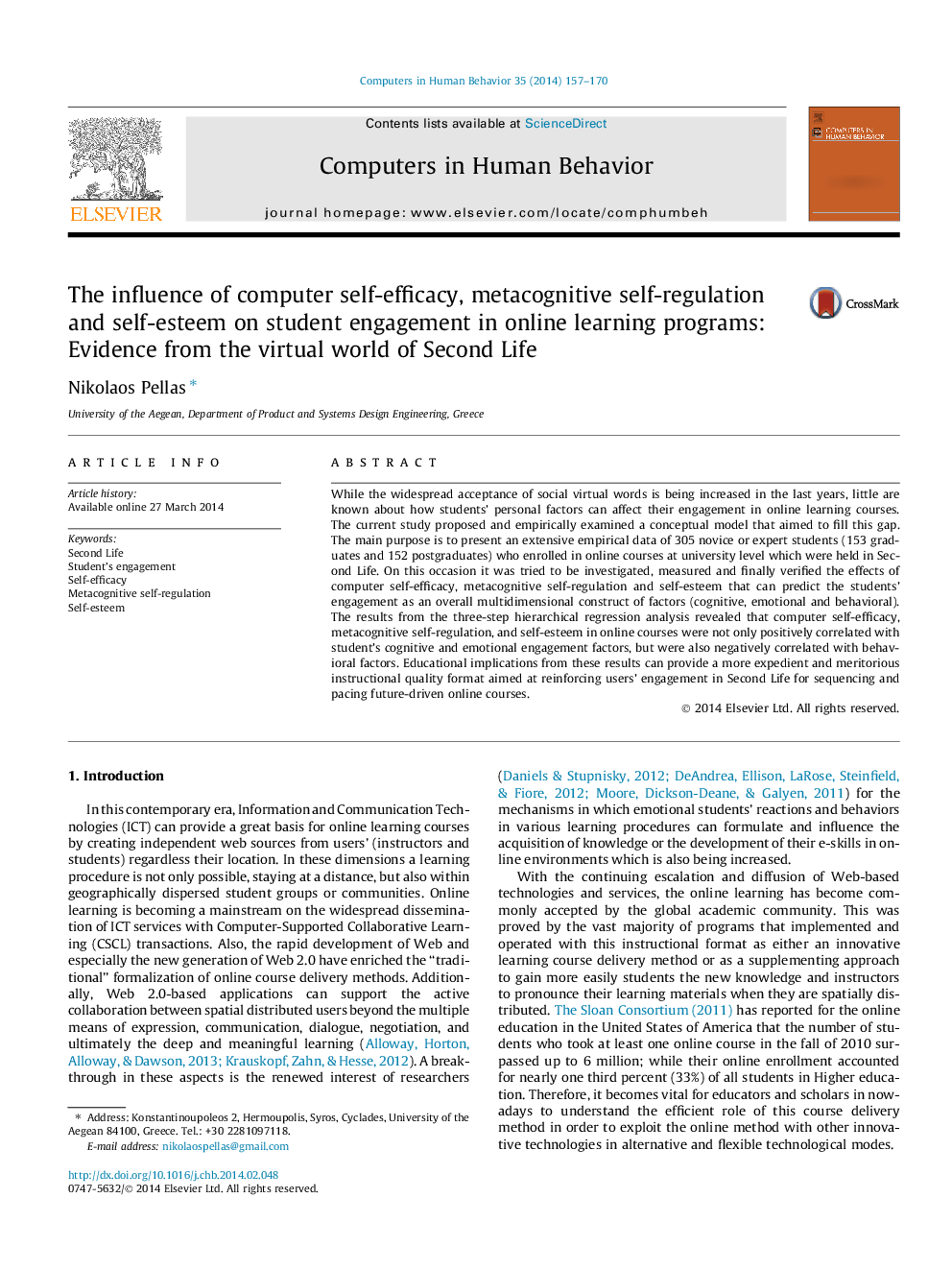| کد مقاله | کد نشریه | سال انتشار | مقاله انگلیسی | نسخه تمام متن |
|---|---|---|---|---|
| 350515 | 618450 | 2014 | 14 صفحه PDF | دانلود رایگان |
• A total worldwide number of 305 students enrolled in this empirical study.
• Socio-cognitive constructs of motivation examined that may predict the students’ engagement.
• Predictors include computer self-efficacy, metacognitive self-regulation and self-esteem.
• The predictive association of socio-cognitive and engagement factors were measured.
• Self-efficacy predicted the overall engagement mostly in an absolute value.
While the widespread acceptance of social virtual words is being increased in the last years, little are known about how students’ personal factors can affect their engagement in online learning courses. The current study proposed and empirically examined a conceptual model that aimed to fill this gap. The main purpose is to present an extensive empirical data of 305 novice or expert students (153 graduates and 152 postgraduates) who enrolled in online courses at university level which were held in Second Life. On this occasion it was tried to be investigated, measured and finally verified the effects of computer self-efficacy, metacognitive self-regulation and self-esteem that can predict the students’ engagement as an overall multidimensional construct of factors (cognitive, emotional and behavioral). The results from the three-step hierarchical regression analysis revealed that computer self-efficacy, metacognitive self-regulation, and self-esteem in online courses were not only positively correlated with student’s cognitive and emotional engagement factors, but were also negatively correlated with behavioral factors. Educational implications from these results can provide a more expedient and meritorious instructional quality format aimed at reinforcing users’ engagement in Second Life for sequencing and pacing future-driven online courses.
Journal: Computers in Human Behavior - Volume 35, June 2014, Pages 157–170
